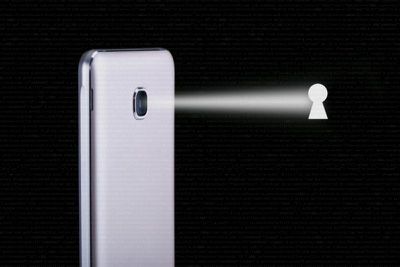A security flaw in Android smartphones from companies like Google and Samsung allowed malicious apps to record video, take photos, and capture audio, uploading the content to a remote server sans user permission.
The vulnerability was discovered by security firm Checkmarx, and was highlighted today by Ars Technica. The flaw had the potential to leave high-value targets open to having their surroundings illicitly recorded by their smartphones.

Android is meant to prevent apps from accessing the camera and the microphone on a smartphone without user permission, but with this particular exploit, an app could use the camera and the microphone to capture video and audio without express user consent. All an app needed to do was get permission to access a device's storage, which is commonly granted as most apps ask for this.
To demonstrate how the flaw worked, Checkmarx created a proof-of-concept app that appeared to be a weather app on the surface but was scooping up copious amounts of data in the background.
The app was able to take pictures and record videos even when the phone's screen was off or the app was closed, as well as access location data from the photos. It was able to operate in stealth mode, eliminating the camera shutter sound, and it could also record two-way phone conversations. All of the data was able to be uploaded to a remote server.
When the exploit was used, the screen of the smartphone being attacked would display the camera when recording video or taking a photo, which would let affected users know what was going on. It could be used secretly when a smartphone display was out of sight or when a device was placed screen down, and there was a feature for using the proximity sensor to determine when a smartphone was facedown.
Google addressed the vulnerability in its Pixel phones through a camera update that was launched back in July, and Samsung has also fixed the vulnerability, though it's not known when. From Google:
"We appreciate Checkmarx bringing this to our attention and working with Google and Android partners to coordinate disclosure. The issue was addressed on impacted Google devices via a Play Store update to the Google Camera Application in July 2019. A patch has also been made available to all partners."
From Samsung:
"Since being notified of this issue by Google, we have subsequently released patches to address all Samsung device models that may be affected. We value our partnership with the Android team that allowed us to identify and address this matter directly."
According to Checkmarx, Google has said that Android phones from other manufacturers could also be vulnerable, so there may still be some devices out there that are open to attack. Google has not disclosed specific makers and models.
Since this is an Android bug, Apple's iOS devices are not affected by the security flaw.
It's not known why apps were able to access the camera without user permission. In an email to Ars Technica, Checkmarx speculated that it could potentially be related to Google's decision to make the camera work with Google Assistant, a feature that other manufacturers may have also implemented.























